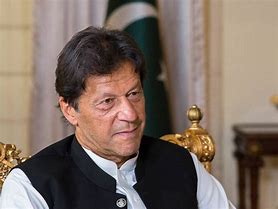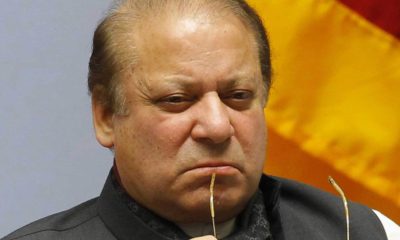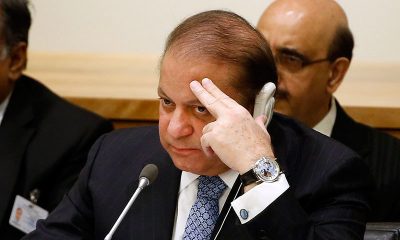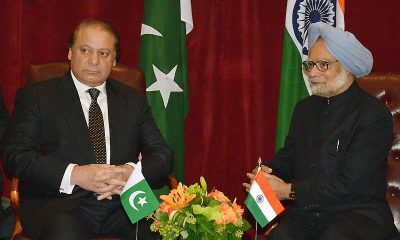World
Pakistan PM vows to punish child abuse culprits

Islamabad: Following a nationwide outrage on the recently unearthed child pornography scandal, Pakistan Prime Minister Nawaz Sharif has vowed “exemplary punishment” for those guilty, a media report said on Monday.
A gang of 20 to 25 men had allegedly filmed as many as 400 videos of sexual abuse involving at least 280 children in Kasur district of Punjab province, The Express Tribune reported.
“The guilty will not be spared,” he said.
Punjab Chief Minister Shahbaz Sharif has also ordered a judicial inquiry into the case.
The chief minister directed the home department officials to immediately request Lahore High Court Chief Justice Manzoor Ahmed Malik to form a commission consisting of district and sessions judges to conduct the inquiry.
On Saturday, a high-level committee report said the police have rounded up at least seven accused while a manhunt was on for the remaining.
Meanwhile, the police said they have arrested another accused involved in the scandal.
Superintendent of Police (Investigation) Syed Nadeem Abbas said all the accused have confessed to forcing children into sex and then filming the act.
“We have recovered CDs of porn videos, phones and memory cards from the accused,” he said.
“The scope of investigation will be widened.”
“Eight cases had been registered against 15 accused on eight complaints within the month of July,” he said.
Jamaat-e-Islami chief Sirajul Haq travelled to Kasur on Sunday where he appealed to the chief justice of Pakistan to take suo motu notice of the scandal.
“An inquiry into the matter should be conducted and the culprits involved in this heinous crime should be tried in military courts on terrorism charges,” he said.
“There could not be a greater act of terrorism than abuse of minor children and forcing the parents to pay extortion.”
World
Lockdowns in China Force Urban Communities to Defy Censorship and Vent Frustration Online

Shanghai’s rich middle class is leading a wave of online dissent over the strict and prolonged lockdowns imposed in various parts of the country. Chinese internet censorship is struggling as patience is wearing thin in many urban centers, coming up with creative forms of online protests.
Social Media Posts Revealing Lockdown Tension in Shanghai
Drawn-out lockdowns are nothing new in China as authorities insist with the nation’s zero-Covid policy since the start of the pandemic. Currently over This time around, however, metropolitan areas like Shanghai are increasingly difficult to keep quiet, given that its more than 25 million residents have seen weeks of total isolation along with food shortages and many other service interruptions.
Dozens of towns and reportedly over 300 million Chinese citizens have been affected by lockdowns of different severity. As expected, urban netizens have been most outspoken over their difficulties by finding creative ways to get around state censorship and bans placed on topics, news comments and spontaneous campaigns.
Shanghai residents have been using mobile proxies and hijacking seemingly unrelated hashtags to talk about healthcare issues, delivery failures and the overall severity of their situation. The “positive energy” that the Chinese government wants to transmit during the recent prolonged series of lockdowns does not come naturally to those counting food supplies and online censors are working hard to filter words, trending topics and undesired social media sharing.
WeChat groups and message threads are under constant monitoring. Posts questioning the zero-Covid approach have been quickly deleted, including by leading Chinese health experts like Dr. Zhong Nanshan. Video footage is soon censored and protests and investigations are quickly made to disappear.
Where this has not worked, officials have exposed banners with warnings and outright threats like “watch your own mouth or face punishment”, while drones have been patrolling the city skies. Yet, if anything, this has led to further tensions and unspoken confrontation with Shanghai’s educated and affluent middle class.
Creative Online Solutions Harnessing Civic Energy
Announcements by Chinese social media that they would be publishing the IP addresses of users who “spread rumors” have not helped either. Tech industry research has shown that much of Asia’s tech-savvy population has a habit of using mobile proxies and other privacy tools, quickly finding workarounds to browse the internet freely and talk to the world about the hottest topics.
The sheer volume of forbidden posts is already a challenge for the very censorship system, experts explain. Unable to track all trending hashtags, state workers overlook topics that speak about the US, Ukraine or other popular news. Linking human rights elsewhere to their situation, Chinese online dissidents establish their informal channels and “hijack” the conversation to share personal or publicly relevant information about the Covid suppression in their town.
Sarcastic and satirical posts still dominate. Others hope to evade the censors by replacing words from famous poems or the national anthem. One thing is certain – social media, when harnessed with the right creativity, has proven its ability to mount pressure on the government in even some of the most strictly controlled tech environments like China.























